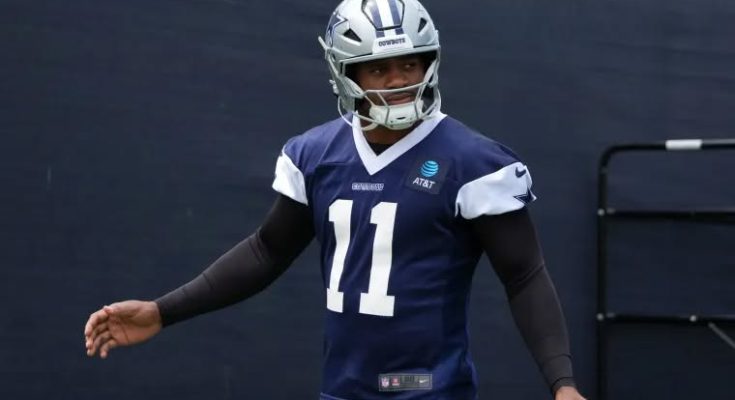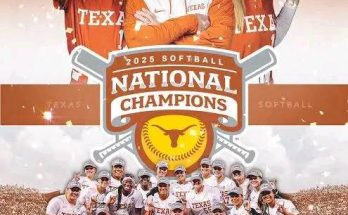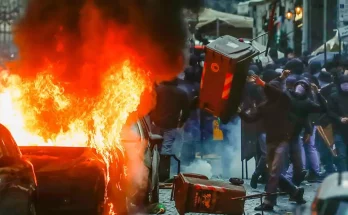**Micah Parsons’ Contract Extension Saga Sparks Major Criticism of Cowboys**
The Dallas Cowboys, one of the most storied franchises in NFL history, are no strangers to drama—both on and off the field. However, the ongoing contract extension saga involving star linebacker Micah Parsons has ignited a firestorm of criticism, with fans, analysts, and even former players questioning the team’s commitment to winning. Parsons, a two-time First-Team All-Pro and one of the most dominant defensive players in the league, is entering the fourth year of his rookie deal, yet there has been little progress in securing his long-term future with the franchise. The Cowboys’ hesitation has not only frustrated Parsons but has also raised broader concerns about the team’s ability to retain elite talent and compete for championships.
Since being drafted 12th overall in 2021, Parsons has been nothing short of sensational. In his rookie season, he recorded 13 sacks, won Defensive Rookie of the Year, and immediately established himself as a game-wrecker. Over the next two seasons, he continued to dominate, earning Pro Bowl honors and cementing his status as the heart of Dallas’ defense. His versatility—capable of playing both linebacker and defensive end at an elite level—makes him one of the most valuable defensive assets in the NFL. Given his production, age (just 25 years old), and marketability, Parsons is in line for a record-breaking contract, likely surpassing the deals of other top defensive players like Nick Bosa and T.J. Watt.
Yet, despite his undeniable impact, the Cowboys have been slow to engage in serious extension talks. This reluctance is puzzling, especially considering the team’s history of rewarding homegrown talent. Quarterback Dak Prescott, wide receiver CeeDee Lamb, and cornerback Trevon Diggs have all received lucrative extensions in recent years, but Parsons’ situation remains unresolved. The delay has led to speculation that owner Jerry Jones and the front office are either unwilling to meet Parsons’ financial demands or are prioritizing other roster moves over securing their best defensive player.
The criticism of the Cowboys’ approach has been swift and severe. Former players like Dez Bryant and Emmitt Smith have publicly questioned the team’s decision-making, with Smith stating, “You don’t let a player like Micah Parsons wait. He’s the kind of guy you build your defense around for the next decade.” Analysts have also weighed in, with ESPN’s Stephen A. Smith calling the situation “a disgrace” and accusing the Cowboys of undervaluing their stars. The backlash has only intensified as other teams around the league lock up their young superstars with massive extensions, leaving Dallas looking increasingly out of touch.
One of the biggest concerns is the potential for Parsons to grow frustrated and seek a trade or hold out. While he has remained professional publicly, subtle hints in interviews suggest he is aware of his worth and expects to be compensated accordingly. “I love Dallas, but this is a business,” Parsons recently said, a statement that many interpreted as a veiled message to the front office. If the Cowboys allow this situation to drag into the season, they risk alienating their best defensive player and creating unnecessary distractions in a year where expectations are already sky-high.
Another layer to this saga is the Cowboys’ infamous reputation for contract disputes. From Emmitt Smith’s holdout in the 1990s to Dak Prescott’s prolonged negotiations, the organization has a history of dragging its feet on major deals, often to the detriment of team chemistry. This pattern has led to accusations that Jerry Jones prioritizes financial flexibility and control over securing franchise cornerstones. In Parsons’ case, the risk is even greater—losing a generational talent could set the defense back years and signal to other players that Dallas is not a destination where elite players are rewarded fairly.
Comparisons to other teams only make the Cowboys look worse. The San Francisco 49ers, for example, made Nick Bosa the highest-paid defensive player in NFL history last offseason without hesitation. The Pittsburgh Steelers similarly locked up T.J. Watt early, ensuring their defensive anchor remained happy and motivated. The Cowboys, meanwhile, seem content to play hardball, a strategy that could backfire spectacularly if Parsons decides he’d rather play elsewhere.
Financial constraints have been cited as a possible reason for the delay, but this argument holds little weight. The Cowboys are one of the wealthiest franchises in sports, and the salary cap is designed to be maneuverable. Creative contract structures, signing bonuses, and void years are all tools teams use to retain stars without crippling their cap space. If the Cowboys truly wanted to get a deal done, they could find a way. The fact that they haven’t suggests either a lack of urgency or a fundamental miscalculation of Parsons’ importance.
The broader implication of this saga is what it says about the Cowboys’ championship aspirations. In a league where elite defenses win titles, letting a player like Parsons enter a contract year without an extension is a gamble they can’t afford. The team has not reached a conference championship game since 1995, and their inability to secure their best players long-term is a recurring theme in their playoff failures. If the Cowboys are serious about ending their Super Bowl drought, they must prove it by locking down Parsons before it’s too late.
As training camp approaches, pressure will only mount on Jerry Jones and the front office to resolve this situation. Micah Parsons is the kind of player who can define a franchise for a generation, and the Cowboys’ handling of his extension will reveal much about their priorities. If they fail to act soon, they may find themselves on the wrong side of history—watching their best defensive player leave while fans and analysts wonder, once again, what could have been.
For now, the ball is in Dallas’ court. The question is whether they’ll seize the opportunity or let another superstar slip away.



